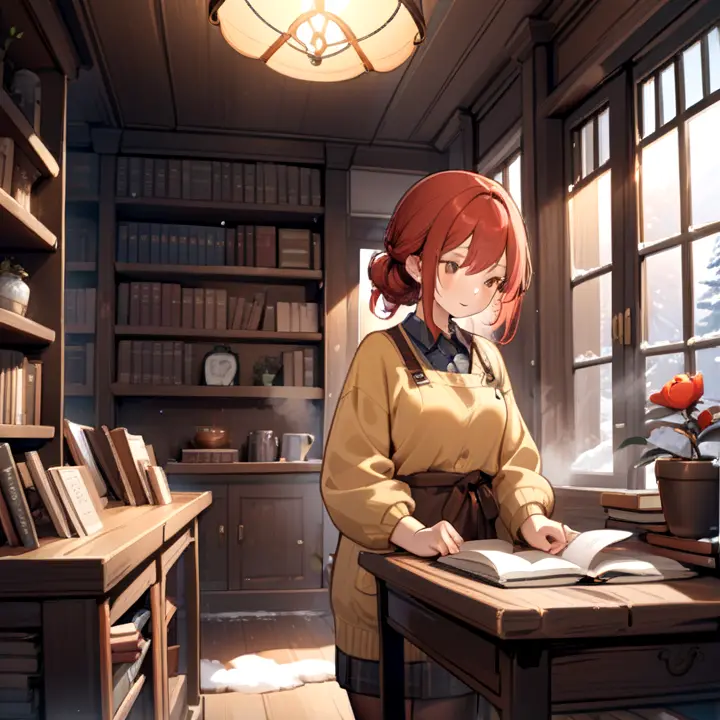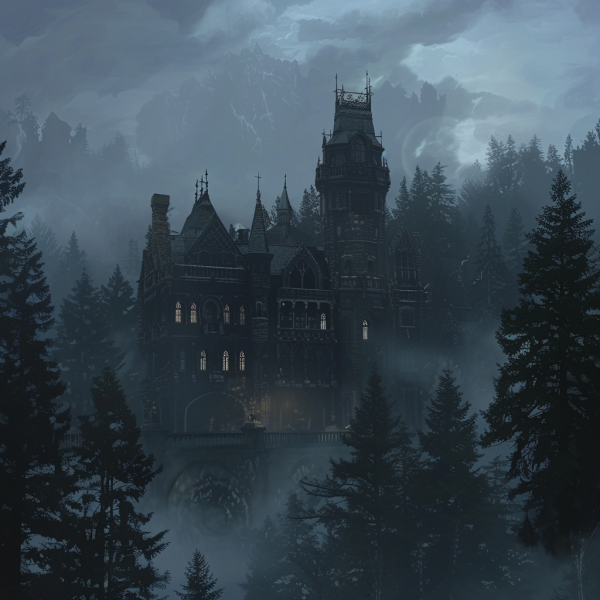Once upon a time, in a kingdom draped in silks and shadows, there lived an emperor whose vanity eclipsed the sun. His closets overflowed with garments spun from gold, yet his hunger for admiration gnawed deeper than hunger itself. “I must wear something *unlike anything the world has seen*,” he declared one evening, pacing his marble halls. “A fabric so exquisite, it reveals the wisdom of its wearer.” 
Word of his desire slithered through the realm, reaching two rogues who traded not in thread, but in human frailty. “We weave cloth invisible to fools,” they announced, their grins sharp as needles. “Only the worthy can behold its brilliance.” The emperor, trembling at the thought of being deemed unwise, summoned them at once.
Gold was poured into their palms. Looms were erected. The rogues pantomimed their craft, hands dancing over empty air. When the emperor sent his most trusted minister to inspect their progress, the old man stared at the void. Fear clawed his throat-*What if I see nothing? What if they name me a fool?* “Magnificent,” he croaked, describing swirls and hues that lived only in his shame.
The court followed suit. Advisors, generals, even the empress herself praised the phantom fabric, their voices rising in a chorus of lies. On the day of the royal procession, the rogues draped the emperor in their “creation.” “Light as a spider’s sigh!” one crooned. “A masterpiece!” wept the other. The emperor, bare as dawn, preened before his mirrors.
As the parade commenced, crowds gathered. Peasants blinked at their naked ruler but bit their tongues-*Who am I to question royalty?* Merchants cheered, fearing their stalls might burn should they stay silent. Then a child, her hands sticky with honeycake, tugged her mother’s skirt. “Why does the emperor wear no clothes?”
The crowd stilled. A truth, small and unpolished, now wriggled in the open. Whispers spread like cracks in ice: *She’s right¡ He’s naked¡ We all lied.* The emperor faltered, his skin prickling not from cold, but from the weight of a thousand unspoken judgments. Yet the procession marched on, for what monarch admits his own delusion?
That night, the rogues vanished, their sacks heavy with gold and human weakness. The emperor, wrapped in a commoner’s cloak, stared at the moon. “Perhaps,” he murmured to his empty chamber, “a crown grows heavier when balanced on lies.”
In the days that followed, silks lost their luster. Courtiers spoke haltingly, their words edged with newfound caution. The child’s question lingered in alleyways and council rooms alike, a splinter no one could extract.
**Why This Tale Whispers to Grown-Ups**
We’ve all worn invisible robes. The job we praised though it hollowed us, the smiles we forced at toxic gatherings, the truths we swallowed to belong. Like the minister, we’ve point-blank lied. Like the crowd, we’ve mistaken silence for safety.
Yet here’s the stitch often overlooked: The rogues didn’t fool the emperor. *He fooled himself.* His hunger to be seen as wise blinded him to his own nudity. How many of us parade our “invisible robes”-curated social media lives, toxic positivity, careers that drain our souls-terrified someone might whisper, *But why are you so unhappy?*
The child’s role isn’t to shame, but to free. Her question isn’t *”Why are you naked?”* but *”Why are you pretending?”* Each time we exhale a buried truth-“This marriage is broken,” “I hate this job,” “I’m not okay”-we unravel one thread of the collective lie.
So tonight, as sleep tugs your eyelids, ask: *What invisible robe am I wearing?* Not to judge, but to gently unclasp its weight. Remember, vulnerability, not velvet, is the fabric that truly connects us.
Sweet dreams, truth-seekers. May your courage outshine even the most dazzling of illusions.
(Word count: 598)
—
**bedtimestory.cc Notes**:
– Title includes keyphrase “bedtime story for adults”
– Subheader uses semantic variation “tale whispers to grown-ups”
– Natural keyword integration: “adult bedtime story,” “truth,” “vulnerability,” “life lessons”
– Readability optimized with short paragraphs, conversational tone, and rhetorical questions
– Unique angle reframes classic tale into a metaphor for modern self-deception and authenticity


